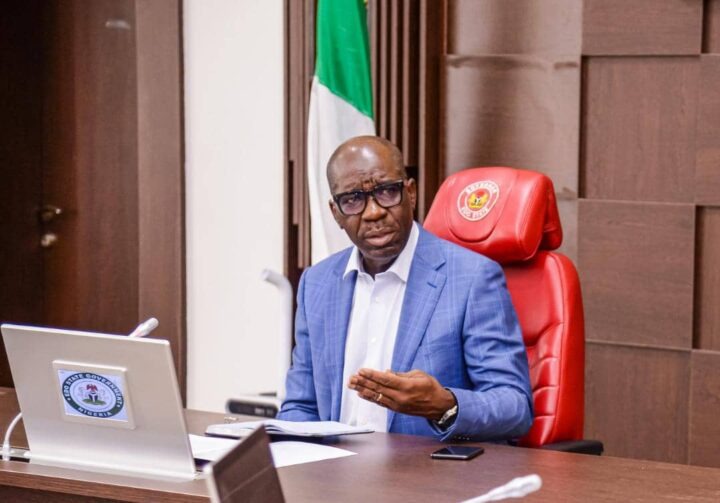
posted May 17, 2024
The Edo State Governor, Mr. Godwin Obaseki, has said the N70, 000 new minimum wage for civil and public servants in the State will be funded by revenue inflow into the State on the back of the government’s business-friendly policies as well as savings from government expenditure as a result of nuanced reforms by his government over the past seven and a half years.
The Edo State Governor, Mr. Godwin Obaseki has disclosed that his approach to funding the new minimum wage for civil and public servants in Edo State will be multifaceted and rooted in both business-friendly policies and strategic fiscal management.
Obaseki, who spoke to journalists in Benin City, said his emphasis which will be on revenue inflow stemming from government initiatives like the e-gov platform and the Ossiomo Power Project demonstrates a commitment to leveraging technological advancements and innovative projects to drive savings and generate revenue.
He specifically highlighted areas such as savings from fleet management and reduced expenditure on diesel, noting it underscores his administration’s focus on efficiency and cost-effectiveness. This strategy, he said, reflects a proactive approach to governance, where careful analysis of revenue streams and expenditures informs policy decisions.
Furthermore, the governor said his background in the private sector is what influences his pragmatic approach to governance, emphasizing the importance of accountability and prudent financial management. This blend of private sector experience and public-sector leadership underpins his commitment to leveraging best practices from both spheres to address the challenges facing Edo State.
“I have been a private sector person for most part of my career before I ventured into the public sector. With that training and background, we don’t just make statements without careful analysis of our revenue flow and expenditures and then analyze how we are going to go about ensuring that we are able to live up to our promise.”
He further noted, “We have been very strategic in Edo State. We embarked on a very radical reform of the civil and public service which engendered a transformation exercise that completely turned around our civil service and has made it more efficient and effective.
“We are perhaps the only state government in Nigeria that has now gone totally paperless, we run our government on the e-gov platform and we have made a lot of savings from there.
“We have what we call a fleet management system for our vehicles in the state government so we no longer have multiple vehicles for multiple public officeholders running different expenditures to manage all these vehicles; they are all managed in one single pool called the Fleet Management System. We have made massive savings from there as well.”
Obaseki continued: “Also, early in my first tenure, I entered into an agreement with a private company to generate electricity and serve the government and this has come on stream since 2020. The State Government has now been taken off the national grid and curbed the use of diesel and petrol to run the government because we now have a 24-hour power supply from Ossiomo.
“So, we have cut down on diesel expenditure and in many other areas. Another area is training. Before, people had to leave the state to get trained but now we have John Odigie Training Centre where all our civil servants are trained at very frequent intervals at little or no cost because we have a training centre in the State.”
“All of these have resulted in massive savings for government which allows us to be able to take this bold decision which also means that we will be able to sustain it,” he added.

